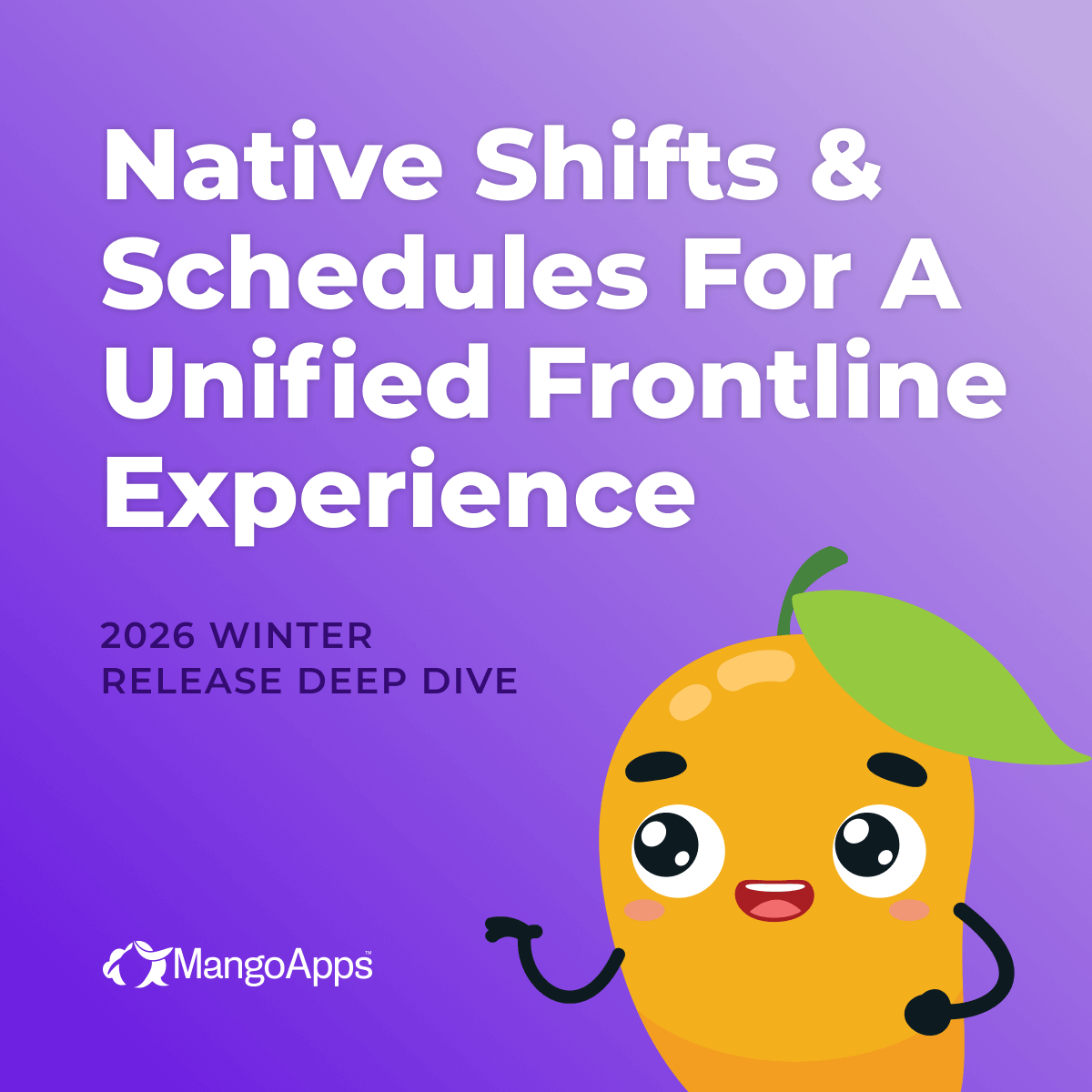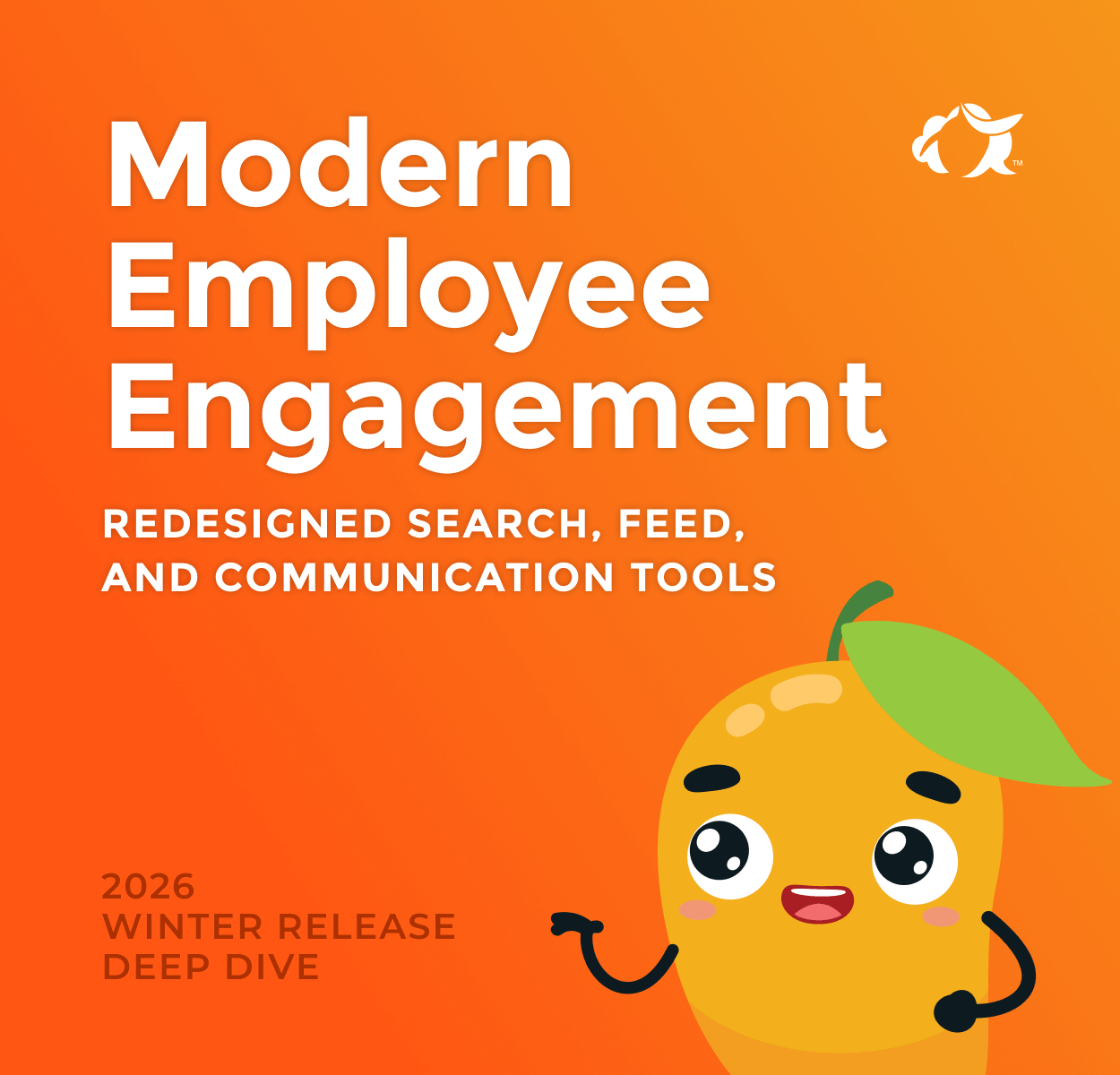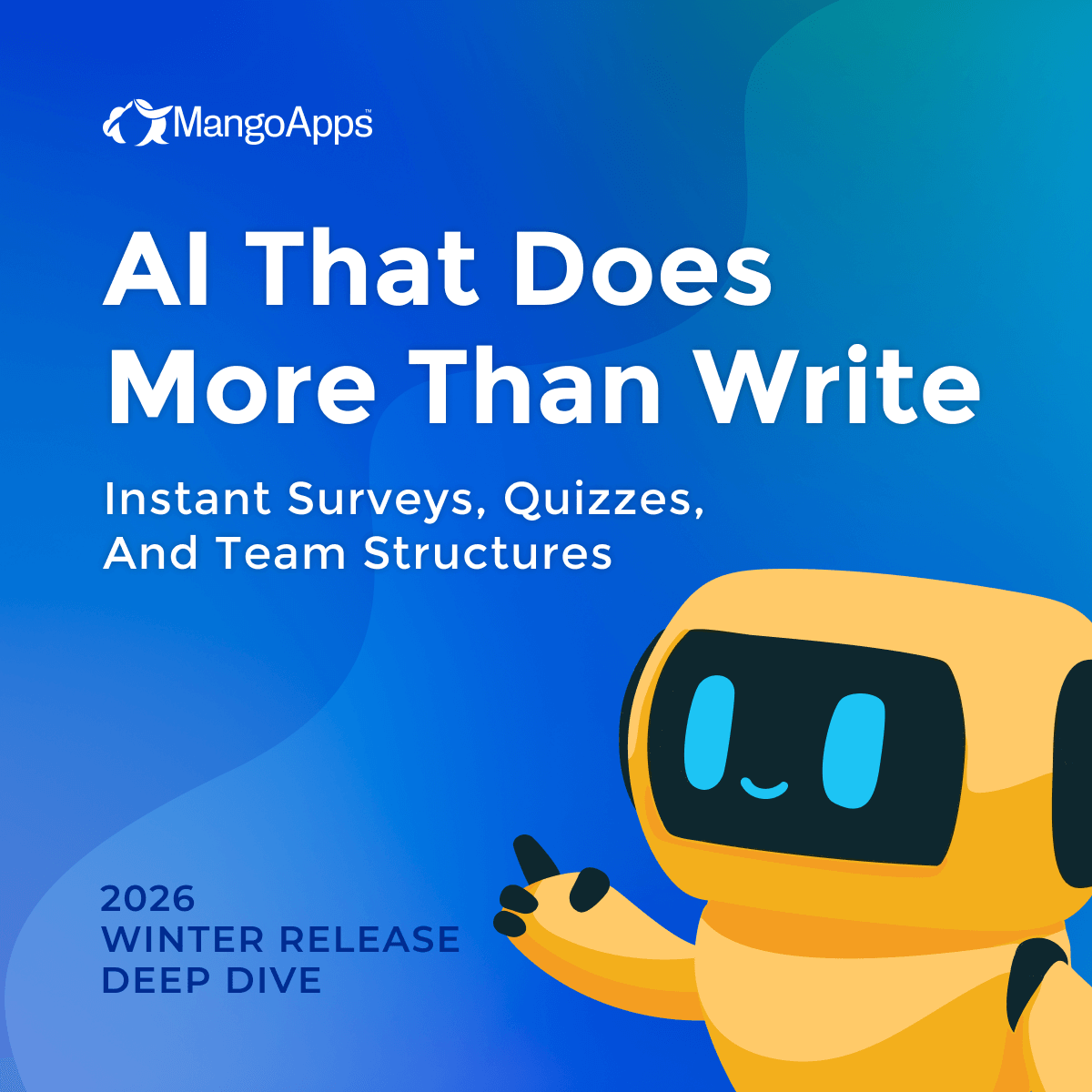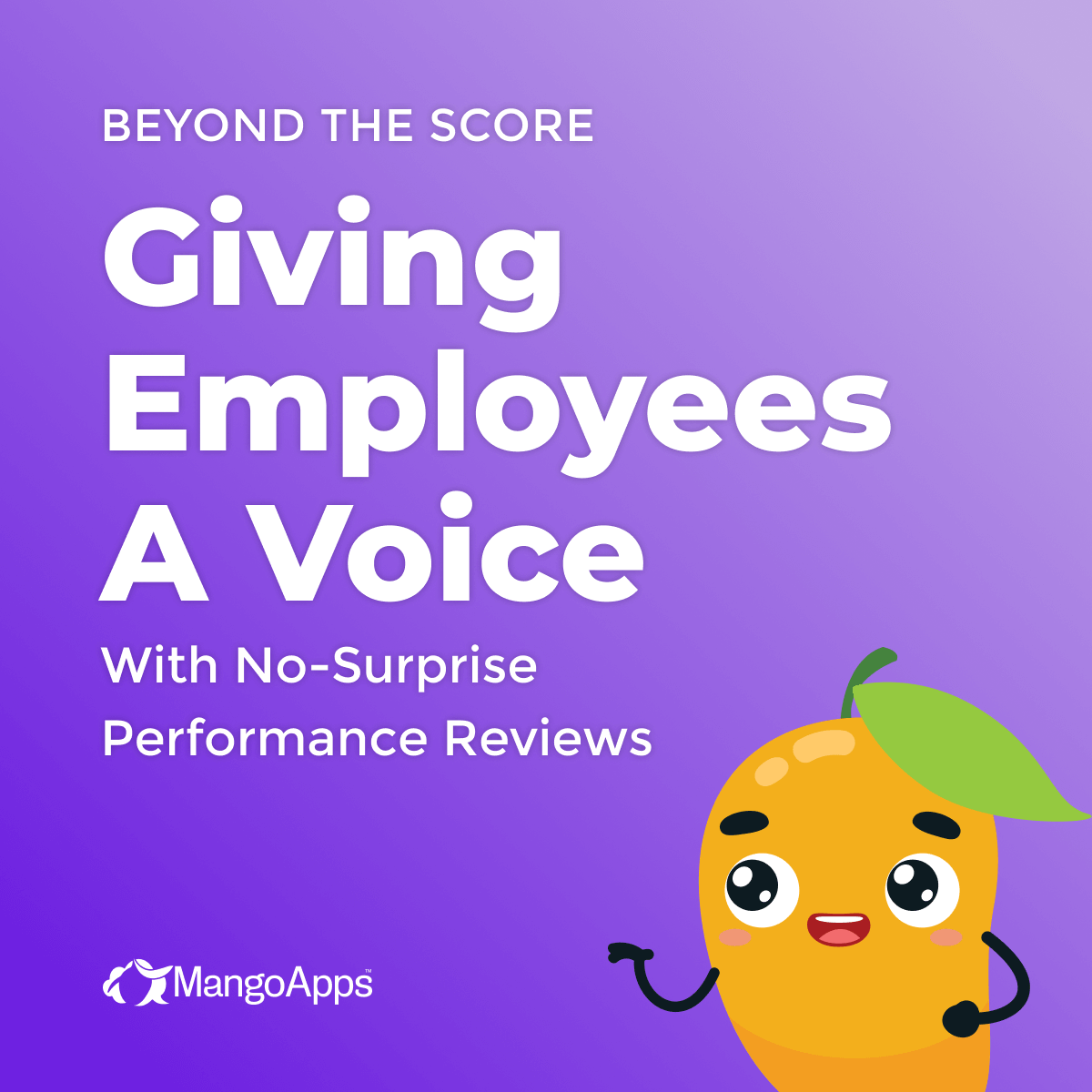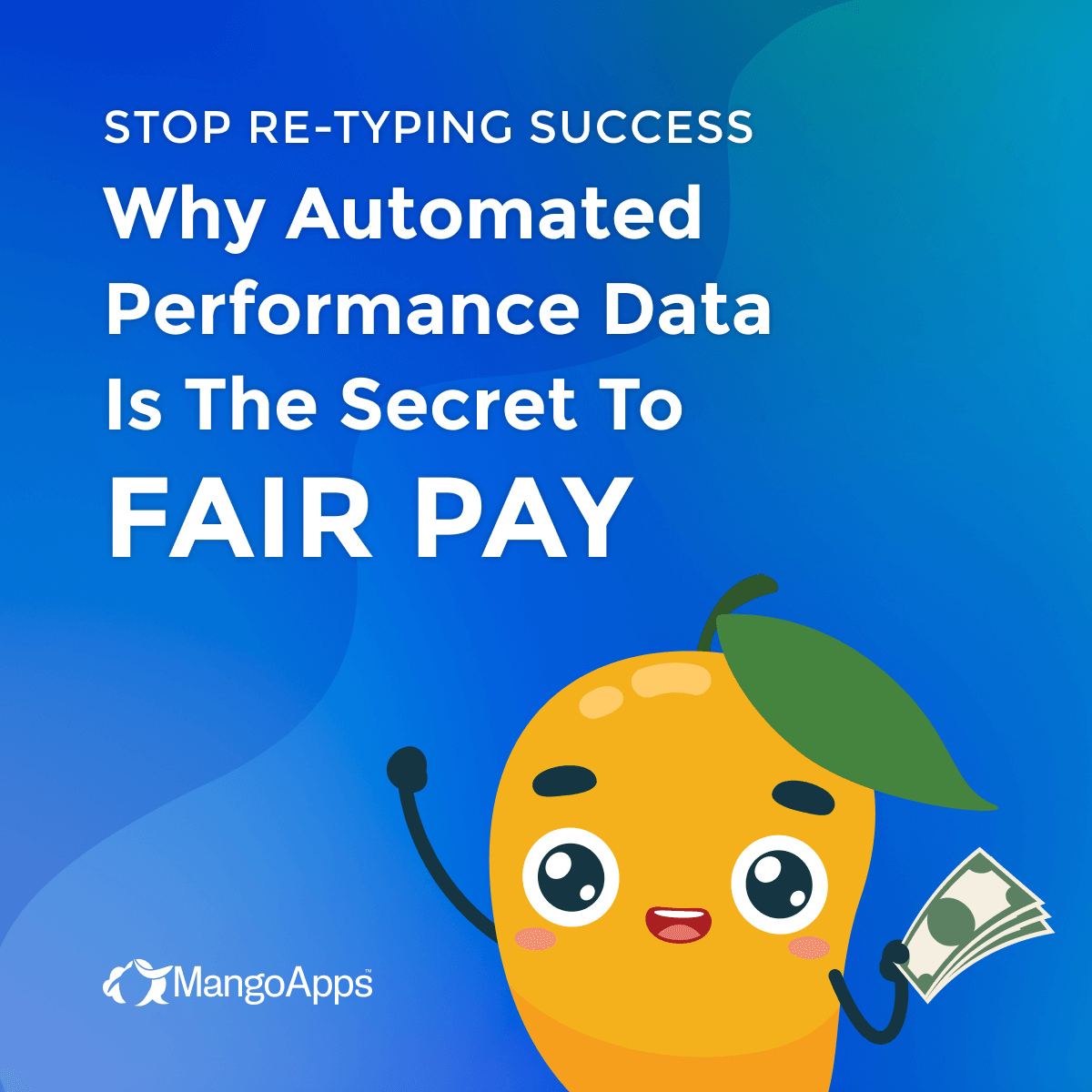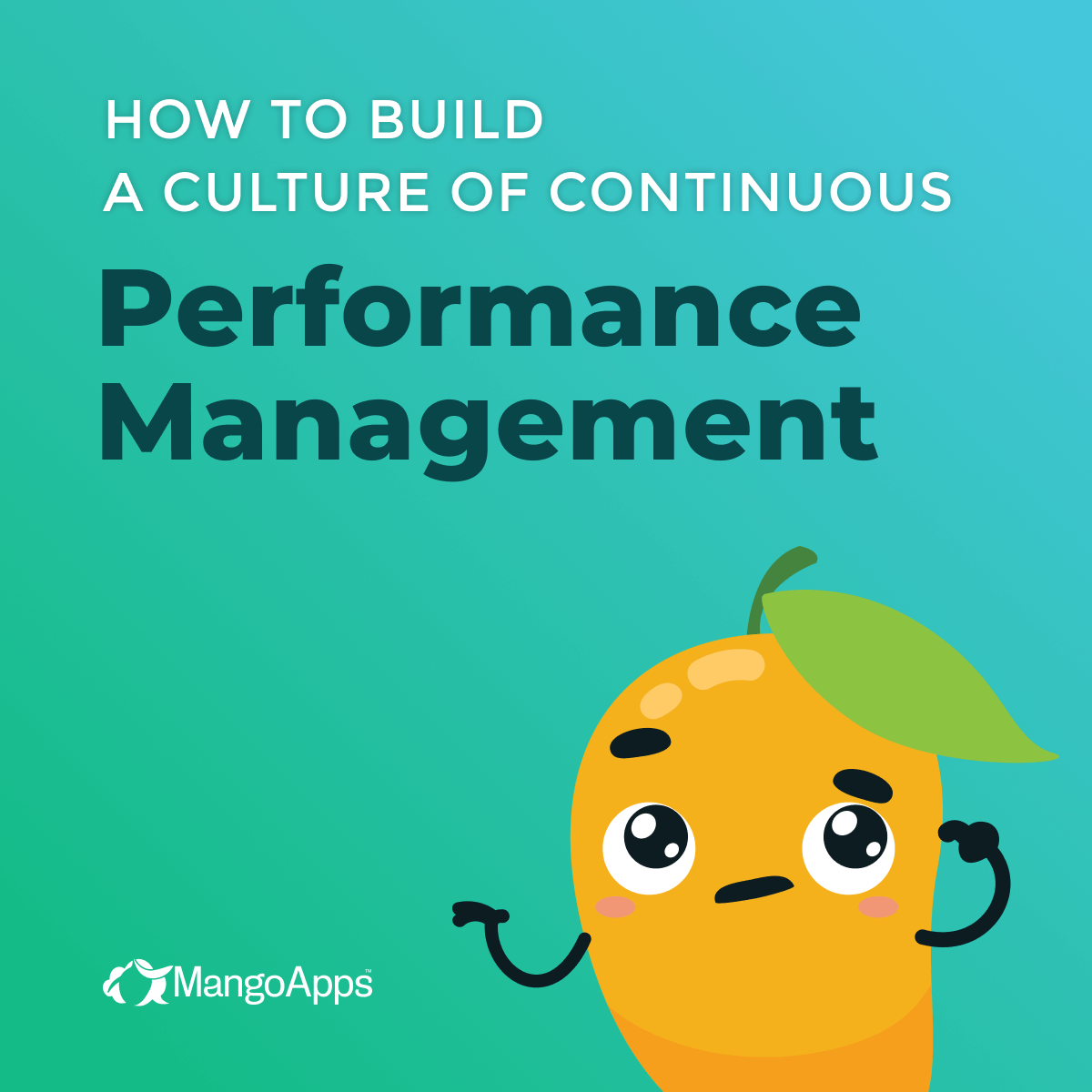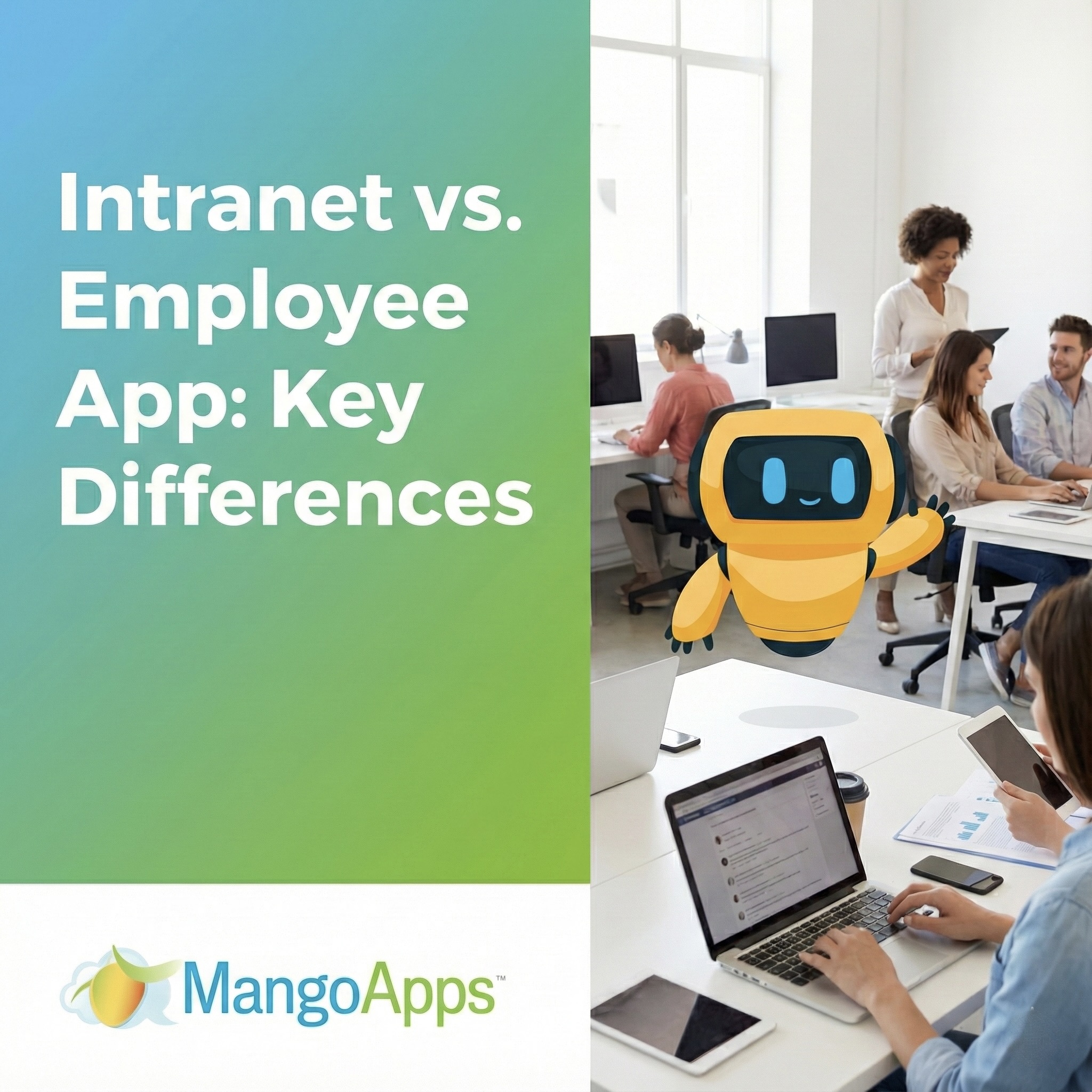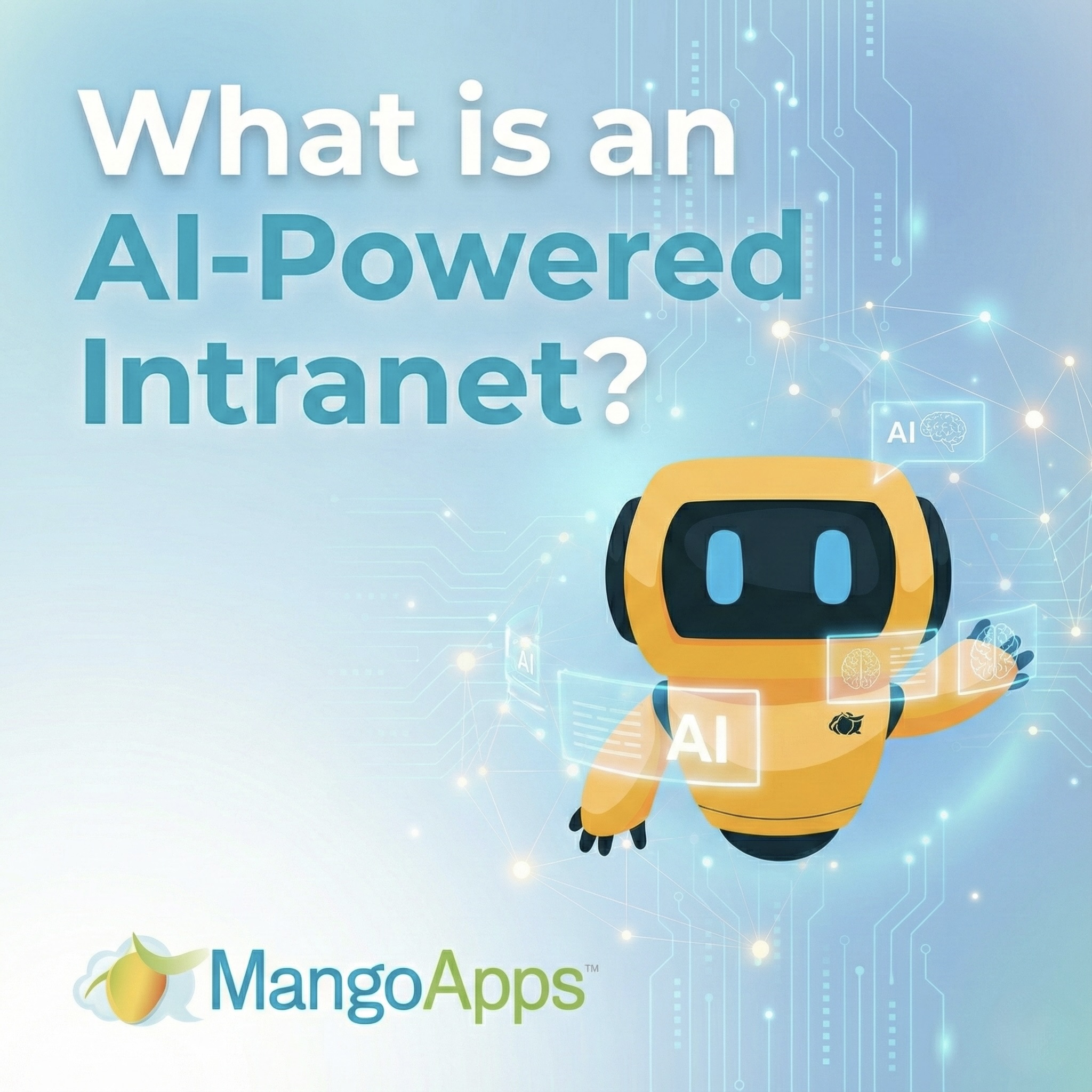
Knowledge capture is a top priority for every company—ensuring that you retain the unique insights your employees collect over time is is crucial for establishing a niche and maintaining a competitive edge, regardless of the industry.
Employee knowledge is often siloed in individual experiences or scattered across various digital platforms, and as a result, it remains underutilized. This leads to inefficiencies such as duplicated efforts, operational missteps, and a significant loss of expertise as employees transition out of the company.
Many technologies have helped companies bridge this gap over the past few decades, and with the current renaissance of generative AI, we have seen an advent of innovative new solutions to this pervasive problem.
In this article, we’ll discuss the problem of knowledge capture for large teams and how MangoApps AI Assistants offer a new, practical approach to solving it.
The Challenge Of Making Knowledge Accessible
The challenge of knowledge capture isn't just about collecting information; it's about making that information accessible and usable across the entire organization with conversational enterprise search. When knowledge is trapped within individual employees’ brains or scattered across different platforms, it can't contribute to the company's growth or innovation.
One of the most pervasive issues in these environments is the fragmentation of knowledge across various departments, teams, and platforms. In many cases, vital information is siloed within specific groups, locked away in proprietary systems, or buried in the depths of seldom-accessed databases.
This fragmentation not only impedes the flow of information but also creates barriers to cross-functional collaboration and problem-solving. When employees are unable to access insights from other areas of the business, the company as a whole suffers from a lack of agility and an inability to harness its collective intelligence effectively, ultimately leading to duplicated work.
Tacit Knowledge Is Difficult To Capture
Tacit knowledge, or the unwritten, unspoken expertise that employees develop through experience, represents another significant hurdle. This form of knowledge is inherently difficult to capture because it resides in the minds of individuals and is often communicated informally through conversations, mentoring sessions, and personal interactions.
Traditional knowledge management practices, which tend to emphasize structured data and documented processes, are ill-equipped to capture these nuanced forms of knowledge. As a result, invaluable insights and learnings can be lost, especially when employees leave the company or transition to different roles.
Technological Disparities and User Adoption
The technological infrastructure within traditional companies often consists of a patchwork of legacy systems, specialized tools, and modern applications. This heterogeneity can create significant challenges in integrating and centralizing knowledge.
Furthermore, these systems may not be user-friendly or intuitive, discouraging employees from actively contributing to or seeking out information. The lack of a unified, easy-to-use platform can severely limit knowledge sharing and accessibility, creating bottlenecks and inefficiencies that hinder organizational performance and fail to capture the dynamic, tacit knowledge that employees develop through their day-to-day work.
Beyond technological and structural barriers, cultural factors play a critical role in knowledge accessibility. In some traditional companies, there may be a culture of knowledge hoarding, where individuals or departments retain information as a form of power or job security.
Additionally, without a strong culture of collaboration and open communication, employees may be reluctant to share their insights or seek help from others. This environment stifles innovation and prevents the organization from achieving a cohesive, informed workforce that can adapt and thrive in a competitive landscape.
Moving Forward: Bridging the Gap
Addressing these challenges requires a multifaceted approach that encompasses both technological innovation and cultural transformation. Solutions need to not only facilitate the efficient capture and organization of knowledge but also promote a culture where sharing and collaboration are valued and rewarded.
By fostering an environment that encourages transparency, leveraging technology that bridges the gap between different sources of knowledge, and emphasizing the importance of capturing tacit knowledge, companies can begin to dismantle the barriers to knowledge accessibility. This shift not only enhances innovation and growth but also strengthens the organization's resilience in the face of change and uncertainty.
The Emergence of AI-Enhanced Knowledge Harvesting
Generative AI technologies are at the forefront of transforming knowledge management within organizations. By feeding information and documents into AI assistants, businesses can distill essential insights from a myriad of data sources, including documents, emails, and conversations. This process not only makes knowledge more accessible and organized but also significantly enhances the organization's decision-making and innovation capabilities.
There are two facets to this approach that solve the problem in a way that past solutions could not. First, the data doesn’t have to be homogenous or organized in any particular way—LLMs can make sense of any data they are fed from any number of sources, and integrations with whatever systems house this data today make it possible to automate the process so it is always up to date.
Second, the ability to query the AI Assistant with natural language makes it possible for even soft knowledge to be surfaced by the system. For example, a new employee could input something like, “What are the common characteristics of projects that exceeded our expectations in the last year?” As long as there is project information stored somewhere, regardless of how well it’s organized, the AI Assistant will be able to provide a helpful answer and link to some examples for additional context. It might even draw out new insights or recognize patterns that had never been noticed by a human employee.
With these new technological leaps, it is easier than ever for companies that do not have an effective knowledge management function today to catch up quickly. Unlike many other applications of generative AI, this does not require a total overhaul of how you do business, a massive budget, or a highly tech-savvy workforce. MangoApps AI Assistants make it as simple as setting up a chatbot and rolling it out to your team.
The Role of Retrieval Augmented Generation (RAG)
At the heart of this transformation is the Retrieval Augmented Generation (RAG) technology, a paradigm shift in how AI processes and retrieves information. Traditional large language models (LLMs) struggle with retrieving factual knowledge accurately and coherently. RAG addresses this by enhancing knowledge retrieval, ensuring that AI-generated responses are not only high-quality but also grounded in factual, reliable knowledge.
MangoApps AI leverages RAG to offer AI assistants that are not just reactive but proactive in managing and retrieving organizational knowledge. These AI assistants are trained on a company's specific data, ensuring the accuracy and relevance of the information provided. This tailored approach reduces the risks of incorrect information, significantly bolsters data security, and enhances operational efficiency. It also can be implemented for many other use cases, such as employee self-service assistants and personalization of your employee experience.
Setting Up MangoApps Assistants For Knowledge Capture
The first step in leveraging MangoApps AI for knowledge capture is through its centralized integration across the enterprise. This initial phase is critical as it ensures that AI Assistants are not only accessible to every employee but also integrated with existing IT infrastructures, causing minimal operational disruptions.
Following integration, MangoApps AI harnesses Retrieval Augmented Generation (RAG) technology to custom train AI models on your company's data. This process involves feeding the system with a wide range of data sources, including internal documents, emails, and other forms of communication, which the AI then uses to learn and understand the unique informational landscape of the organization. This data never leaves your instance of MangoApps, ensuring tight security and enabling you to make use of internal data without fear of leaks.
Once this setup is done, creating custom AI Assistants tailored to specific organizational needs is straightforward. The platform's intuitive interface allows for the customization of AI capabilities, ensuring that they are directly aligned with employees' job functions and requirements. This means that whether it’s for HR, IT, or any other department, the AI Assistants can be fine-tuned to address the unique challenges and requirements of each domain, enhancing operational efficiency and knowledge capture effectiveness.
You can also give each assistant default prompts, helping your employees understand what the assistant is capable of and should be used for. This can dramatically speed up the integration of this technology into your workflows, as one of the primary barriers to widespread usage of generative AI is that many people simply don’t know where to start.
MangoApps AI Assistants are designed for continuous learning and adaptation. As more data is captured and fed into the system, the AI models are continually refined and improved, ensuring that the knowledge capture process becomes increasingly effective over time. You also get to see insights into how employees are using the assistants, which is not possible with most generative AI solutions today, as they are designed for individual usage rather than enterprise scale.
By following these steps, organizations can set up MangoApps AI Assistants to enhance their knowledge capture capabilities significantly. This not only minimizes the risk of knowledge loss but also ensures that valuable information is readily available, fostering a culture of continuous learning and innovation. With MangoApps AI Assistants, businesses are well-equipped to navigate the complexities of the digital age, and do so in a secure manner that can be tracked and optimized for better performance over time.
Navigating Challenges and Looking Ahead
Despite its benefits, the integration of AI into knowledge management is not devoid of challenges. Concerns around data security, the quality of AI-generated content, and the potential for human error remain prevalent. However, the strategic implementation of AI, coupled with robust governance and ethical considerations, can mitigate these risks; the alternative is an unregulated environment where your employees use Generative AI with no guardrails.
As organizations like MangoApps continue to push the boundaries of what's possible with AI, the future of knowledge management looks promising. AI-enhanced knowledge harvesting not only represents a leap towards more efficient and informed decision-making but also a significant competitive advantage in the modern business landscape. The synergy between AI capabilities and human expertise is not just enhancing the organizational knowledge base; it's redefining it, paving the way for a future where knowledge is not just captured but also cultivated, leading to unprecedented levels of innovation and growth.

